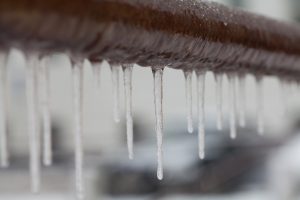 You might love the winter season, but your plumbing isn’t as happy about it. One of the biggest threats to your plumbing arrives along with the cold weather and snow: freezing pipes. When pipes freeze solid, it not only blocks water flow, it threatens the pipes with bursting.
You might love the winter season, but your plumbing isn’t as happy about it. One of the biggest threats to your plumbing arrives along with the cold weather and snow: freezing pipes. When pipes freeze solid, it not only blocks water flow, it threatens the pipes with bursting.
If you have a frozen pipe during the winter, call for a professional plumber in Burlington, VT to come to the rescue. Attempting to thaw the pipe on your own is often what causes bursting! (The spike in pressure as the ice melts laterally tears open the pipe.) A professional plumber can handle the thawing without endangering the piping.
Stop Freeze Before It Happens
We’d like to help you avoid having a frozen pipe in the first place. Here are the best tips to prevent your indoor pipes from stopping ice cold.
- Keep your home warm: The heating system in your house is important for the pipes in it as well as the people. Even during times when you are away from home, keep the thermostat set at 55°F or above to help keep the plumbing system above freezing. A programmable thermostat can be a huge help with this. (We’re also an HVAC contractor, and we can help to keep your heating system reliable.)
- Drip those faucets: Moving water through pipes that are at the highest risk of the cold—such as those that pass through exterior walls—helps to stop freezing as well as the high pressure that causes bursting. On extremely cold days and nights, open these faucets a bit to allow them to drip.
- Allow warm air to circulate: Open up the interior doors in your house to allow the heat to circulate better. This is important for rooms that are often closed, because they will turn colder and threaten the pipes in their walls.
- Insulate exposed pipes: The pipes at the highest risk of freezing are the exposed ones in the basement, garage, and other areas that are left unheated. You can purchase insulating sleeves to wrap around them. For more help, ask a professional plumber for the best ways to insulate this piping.
- Drain the pipes before a long trip: When planning a long vacation, drain the whole water system first. Shut off the water main, then open all the taps in the house and let the remaining water in them flow out.
There are also steps to take to protect the outside pipes: disconnect hoses from drain bibs, and place special insulators over the drain bibs to prevent cracking. If you have a sprinkler system, it needs to have the water drained from it.
Plumbers Can Help With Your Winter Plumbing Concerns
Are you still worried about frozen pipes, probably because you’ve had trouble in the past? This is why we’re here! We have many years of experience dealing with the local weather and the problems homes here face with their plumbing. Trust us for the best pipe winterization—and any other winter plumbing dilemmas you may face.







